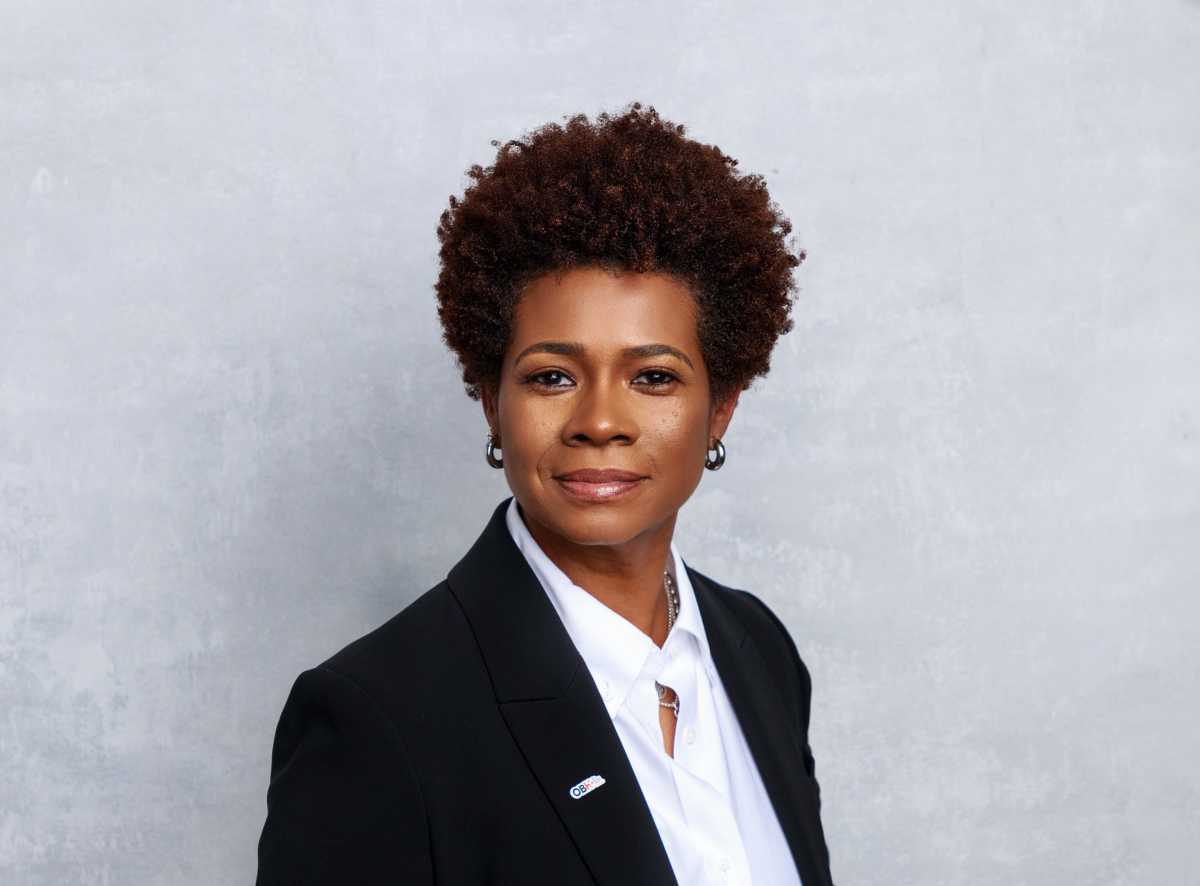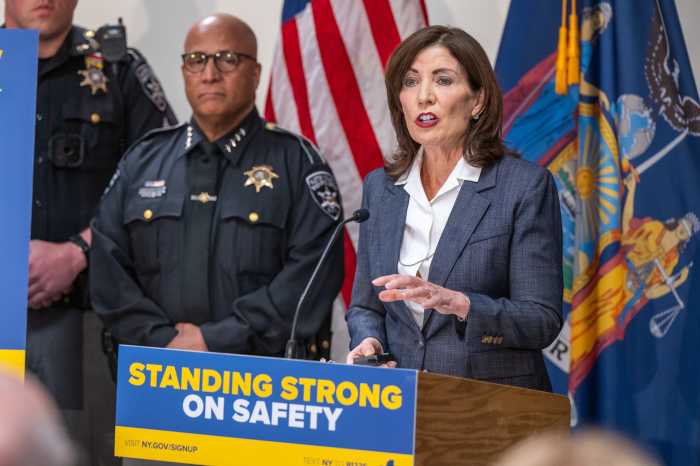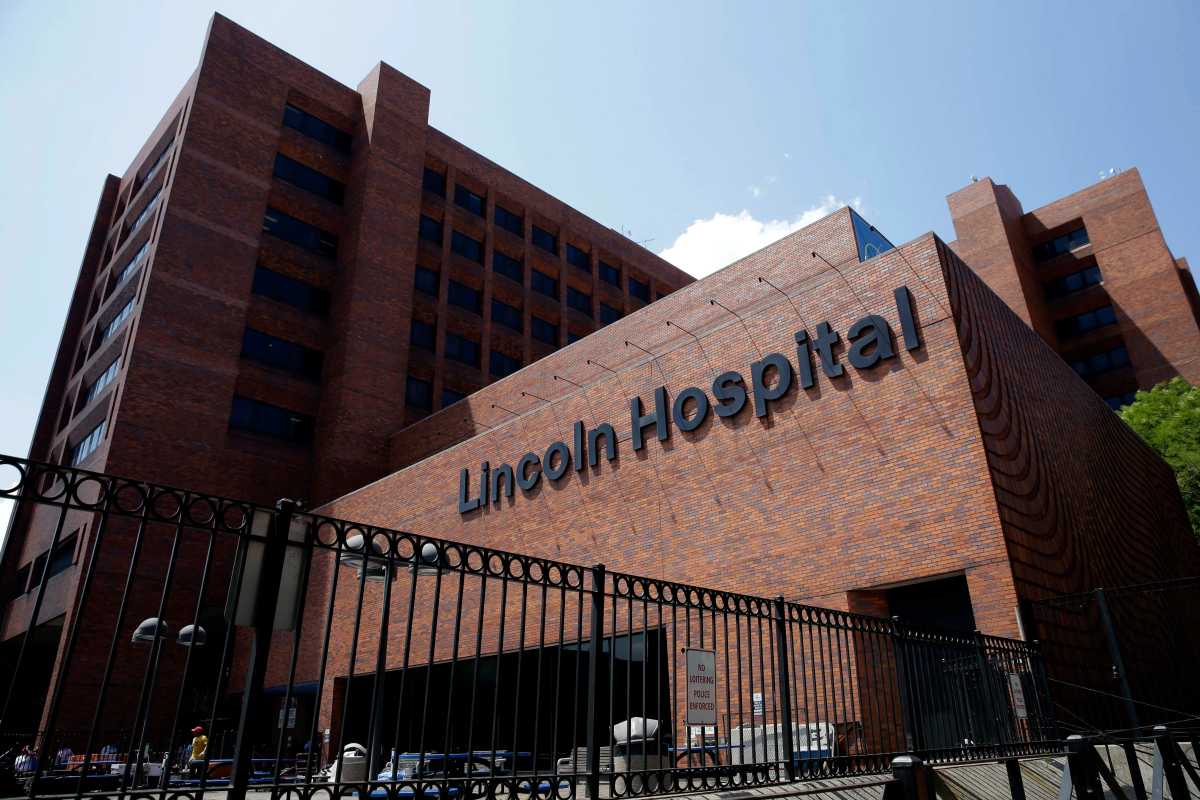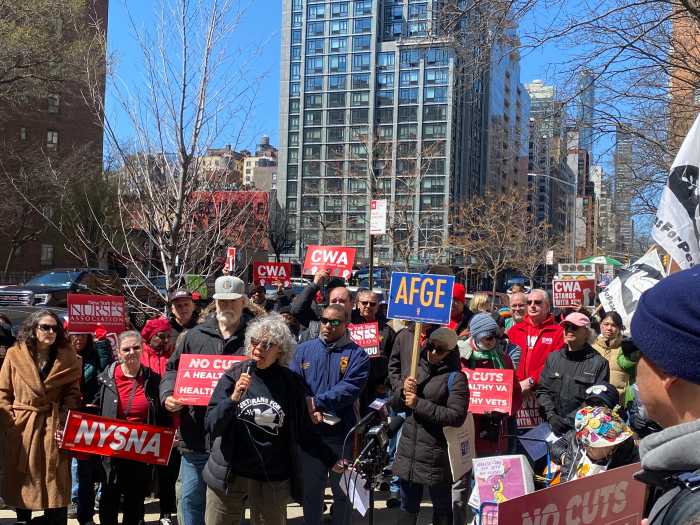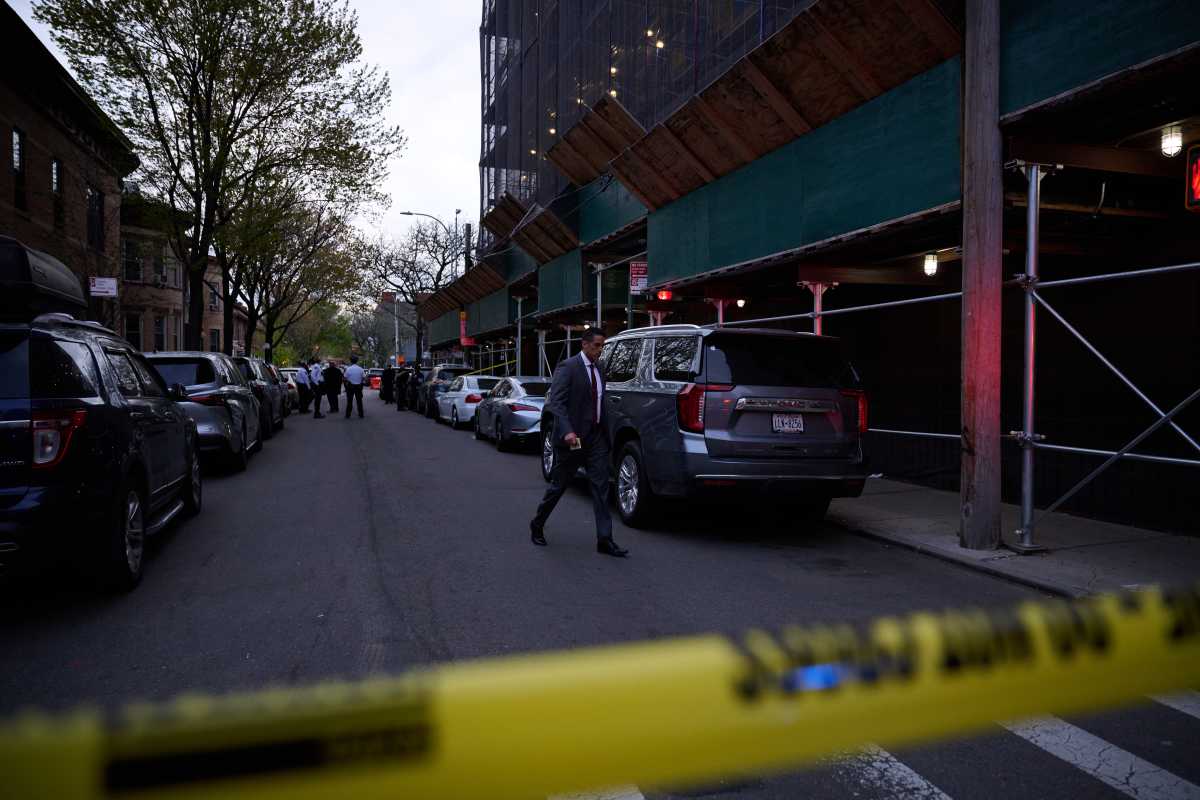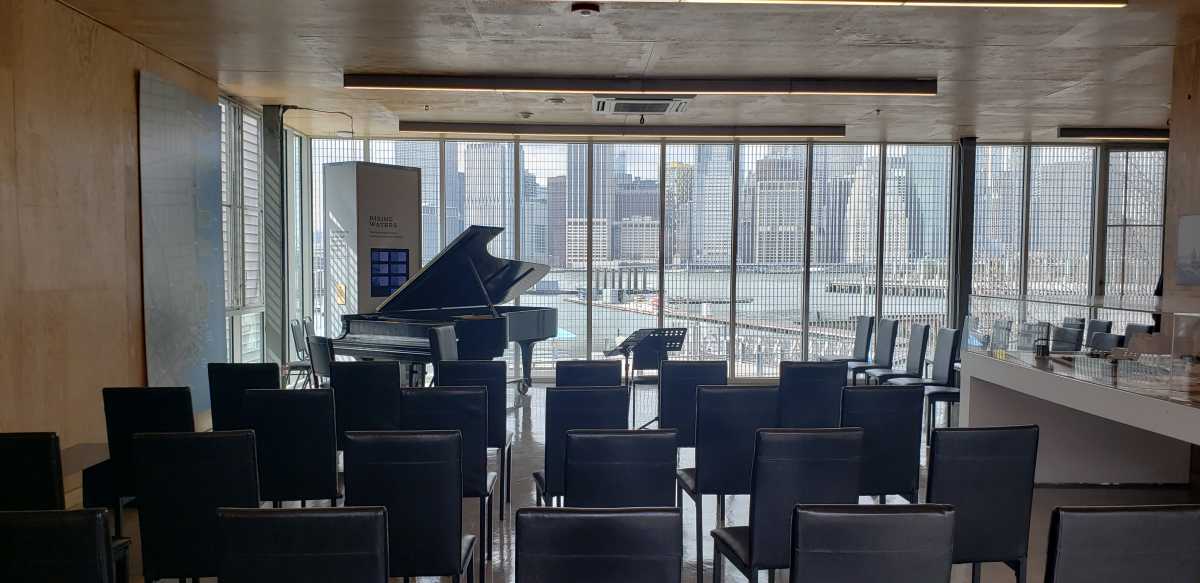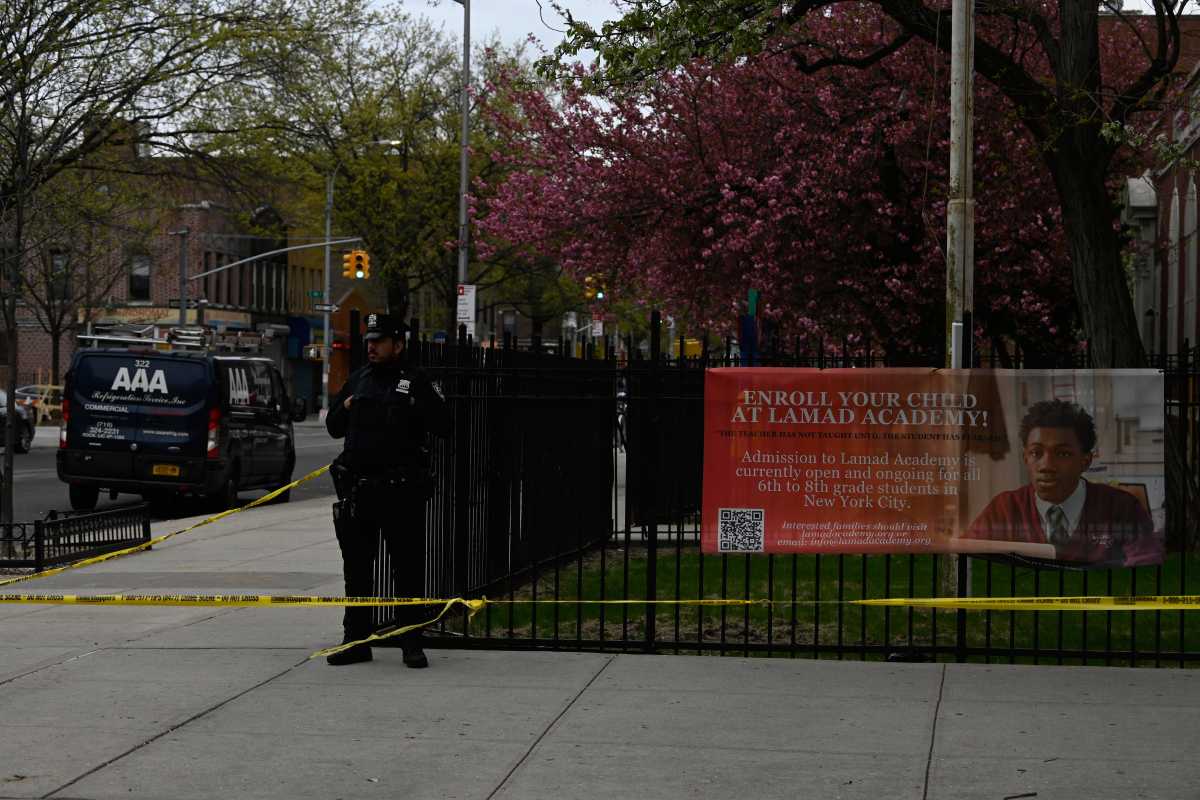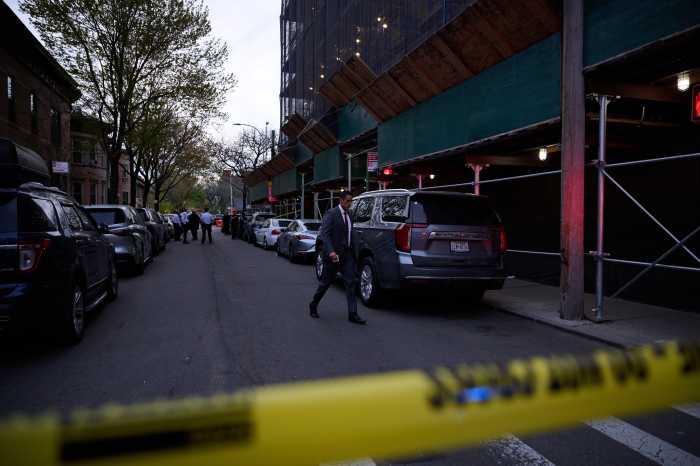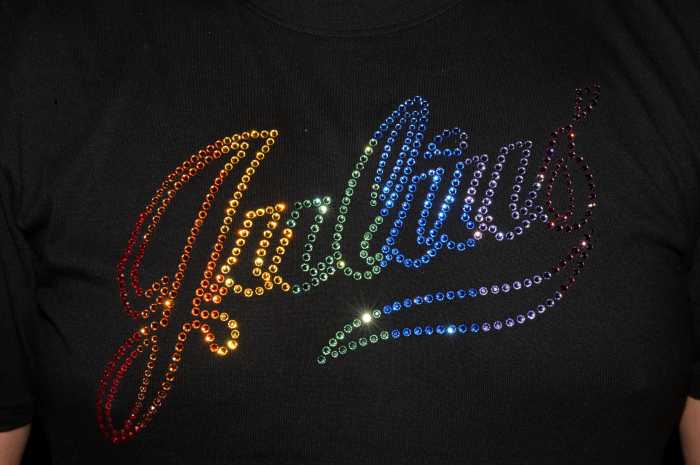Dr. Sandra Scott, Interim CEO at One Brooklyn Health, is continuing to break the glass ceiling in healthcare, and is working to help bring trust back in the system for the LGBTQIA+ community.
Originally from New Orleans, Louisiana, Dr. Scott knew from the time she was a little kid that she wanted to be a doctor. After receiving a degree in science from Louisiana State University, Dr. Scott went on to study medicine in Houston, Texas at the Baylor College of Medicine.
It was at Baylor that Dr. Scott started to come into her own identity as a woman of color and as a member of the LGBTQIA+ community.
“In Louisiana during that time, there was no discussion. I think the discussions around being a person of color was about gently pushing back against a lot of the racist practices that we had to deal with. I never really heard any discussions about the LGBTQIA+ community, I don’t remember in college, I don’t remember there being gay bars or gay societies,” said Dr. Scott. “When I went to medical school, I think Houston had a more vibrant gay community in what was called the Montrose area back then. So that’s when I was really introduced to this whole sense of community and that there were places that you could go and diversity was the norm and people celebrated diversity. So whether you were gay or Black or Hispanic, it was a safe place in the gay community in Houston.”
After graduating from medical school, Dr. Scott made her way to Boston, and traveled around practicing medicine on the East Coast and overseas before eventually settling in Brooklyn. However, it was her time in Boston that gave her more of a socially conscious training experience, particularly in the field of emergency medicine.
“I actually had a teacher who was a lesbian who taught domestic violence and sexual assault work. That’s where my broader understanding of how health care must be sensitive to the needs of all communities, and really train staff, that’s nurses and the clerks who check you in and the doctors and the residents in training, to be able to be mindful that you don’t necessarily want to treat others the way you want to be treated, and that requires that you ask questions and be vulnerable and be open,” said Dr. Scott.
Dr. Scott made history in Brooklyn when she became the first woman, physician and person of color to serve as executive director of the Brookdale Hospital Medical Center. She has since taken on the role of Interim CEO of One Brooklyn Health, where she continues to serve and uplift communities with health and equity disparities.
Medical care and the LGBTQIA+ community
In her career, Dr. Scott has seen firsthand how the LGBTQIA+ community may be hesitant to seek medical care. Even for the most standard levels of care, Dr. Scott says that there is an astounding lack of knowledge about the LGBTQIA+ community in the medical industry.
“We’re all human beings, right? LGBTQIA+ people have headaches and chest pains and stomach viruses and COVID. There are a few circumstances where there’s something that might be unique to the LGBTQIA+ community, like transitioning. But for the most part, it’s the medicine that is not terribly different, because we’re all human beings. But the perspective and understanding, I think we were talking about this before just something as simple as asking someone, what’s your preferred name and what’s your preferred pronoun?”
In certain medical situations, Dr. Scott says that LGBTQIA+ patients aren’t fully informed as to why certain procedures are done, and the doctor/patient or nurse/patient relationship needs to be built on respect.
“If you’re a trans man and you go to your OBGYN visit or if you go to your primary care visit and someone needs to ask you for a pregnancy test, did the staff do that in a respectful way? How do you ask a man for a pregnancy test? That’s part of the normal checkup for that person assuming they still have their uterus, but that requires training,” said Dr. Scott. “It requires training because in my experience over the years, most people are not comfortable with those types of conversations. So I think, what might be routine for someone who’s straight checking in for an appointment being greeted, asking to give urine and blood, right? Those are routine steps in a primary care visit, but for someone who is LGBTQIA+, that could be a very anxiety-provoking experience.”
Dr. Scott told amNewYork Metro that in these situations, medical professionals can stand to be trained to further develop a healthy relationship with their queer patients.
“I think that medicine is doing a better job of educating and training and setting expectations and allowing LGBTQIA+ people to participate in the training and education so that we hear their perspective straight from them and not interpreted by others is helping to move the needle, but largely discomfort and probably in many circumstances, disrespect, both intentional and unintentional is what keeps people from going to the doctor,” said Dr. Scott.
On the patient side, Dr. Scott is seeing a lot more patients advocating for themselves, which is crucial, particularly for the LGBTQIA+ community. She told amNewYork Metro that every medical facility should have a Patient Advisory Committee where patients can talk about their experiences with that organization.
That said, when patients are in their appointments, Dr. Scott says the best thing they can do is advocate for themselves.
“If the patient doesn’t speak up, it may not get reported. The staff may feel like, well, when I talk to the patient, I’m following the appropriate guidelines and my communication but not understanding that,” said Dr. Scott. “When you’re talking about the patient, like 7 feet away, they can hear you because many of our healthcare settings are open. The patient can personally describe how that impacts them and the vulnerability that you’re in as a patient when you’re relying on the same staff to provide you with treatment. Like, do I complain to the person who has to give me my shot and draw my blood in a few minutes? So I think giving patients another avenue to be able to give us a firsthand account of how it feels to be them in our health care settings is extremely important.”
There is more work to be done
In her career, Dr. Scott has seen the medical community make some great strides in care for the LGBTQIA+ community, with more training taking place, online portals giving options for patients to provide their preferred name and pronouns, as well as increasing their visibility in the community in Pride parades (Dr. Scott herself served as one of the Grand Marshals of this year’s Brooklyn Pride Parade).
However, Dr. Scott acknowledges that there is still more that can be done.
“I think it would be good for health care organizations to hold forums for their LGBTQIA+ patients, to be able to just have a conversation with the community and talk about what can we do to make this a better experience for you. Ideally they come in for their visit and they’re just like anybody else who comes in for a visit,” said Dr. Scott. “I think that it is necessary for the community to partner with healthcare organizations and help us get to where we need to be so that anyone can walk through our doors and feel comfortable and access the care that they need.”
At the end of the day, no matter what your identity may be, Dr. Scott urges everyone to get the medical attention they need, no matter how serious, because your health is paramount and who you are should not stand in the way of you getting treatment.
“No matter who you are or where you come from or what language you speak or what you look like when you need health care, those things that make you a diverse, unique individual are not barriers to you getting the treatment that you need. That’s my hope and dream,” said Dr. Scott.



